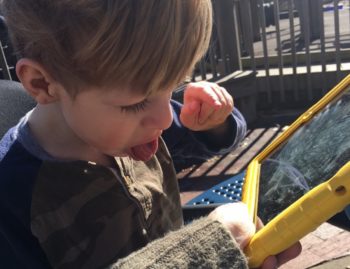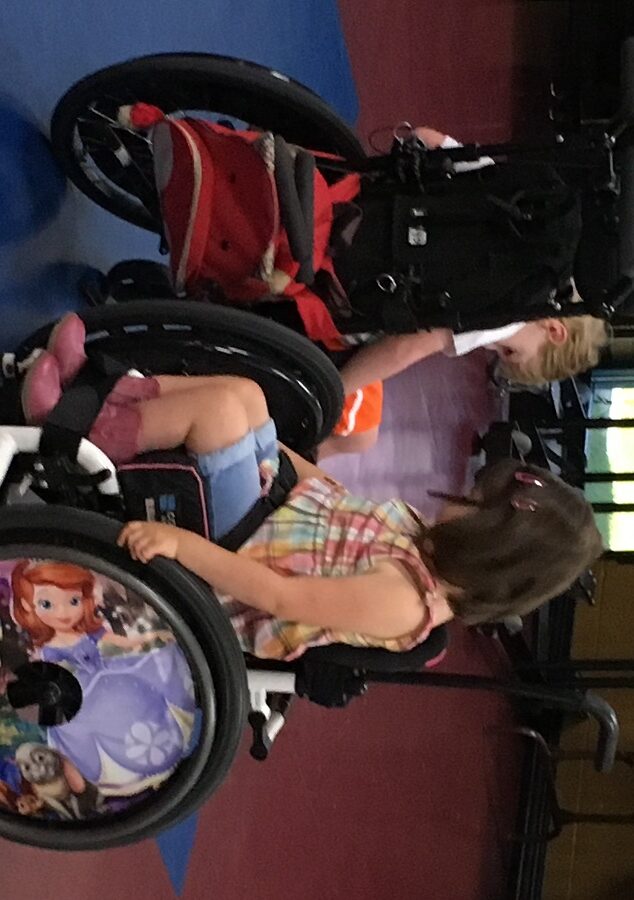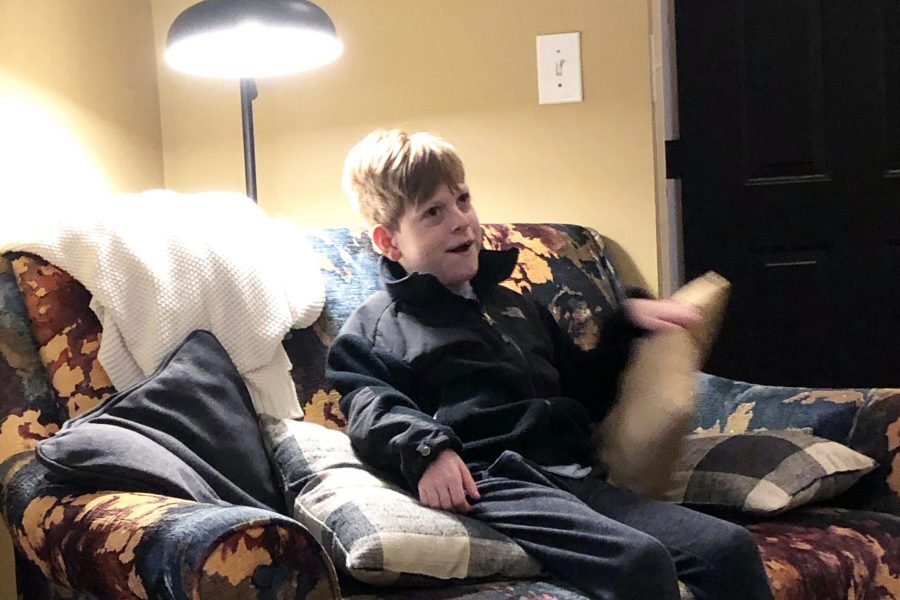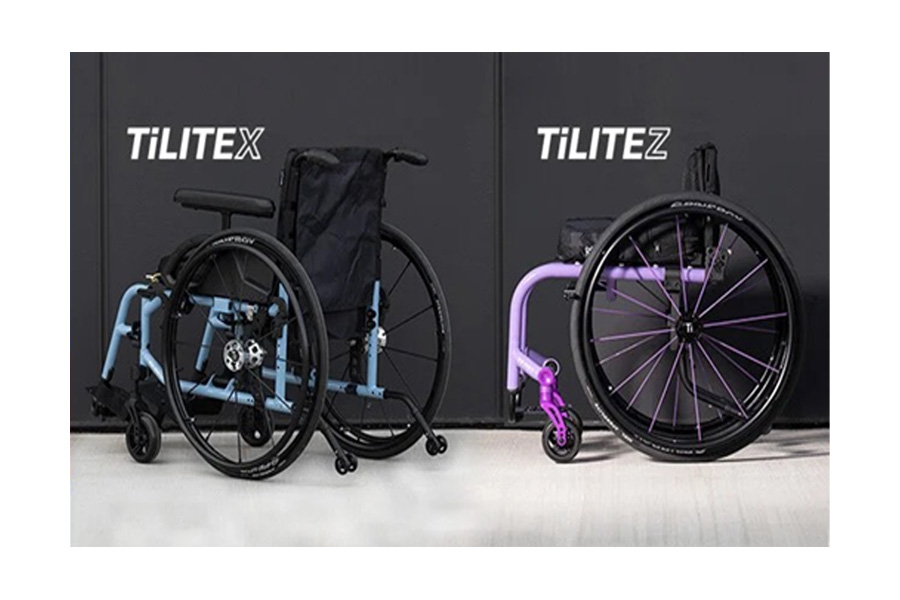My son, Charlie, is sitting on a horse in an indoor riding arena holding a hula hoop. This means it is Friday morning. Every Friday we have hippotherapy, where he rides and works his core muscles and feels his hips move in the best approximation of walking that his cerebral palsy will allow. He loves Pedro, his horse and the grooming. He loves his teal helmet and the tractor they sometimes let him ride.
On this particular morning, it is hot and muggy, and I am watching the sky for storms. A friend and fellow special needs mom is with me. She brings up the new program they’ve started that combines speech therapy with hippotherapy. The idea is to ride and talk, I suppose. She might let her son try it. Her son is Charlie’s age and also in a wheelchair. We’ve known each other for a few years. In the beginning we were par for the course on almost everything. Getting wheelchairs at the same time. Trying out gait trainers. Trying out therapists. We met at local gyms with adults in wheelchairs who volunteered their time playing basketball and relay racing with the kids—anything to get them moving in their chairs.
But slowly and surely, our paths have begun to diverge. Her son his moved on to kindergarten a year ahead of Charlie. And he’s a rock star in his wheelchair. Meanwhile, we are moving on to a power chair. Charlie is often too tired or uninterested in wheeling himself around on his own. She once texted me a picture of her son on a motorized Powerwheels they bought at Toys R Us. We immediately went out and got one, thinking Charlie would love it. He tried it, but the movement was so jerky that it startled him and he cried for half an hour. We still continue to try. He still resists. It’s just not for him. Charlie also got his speaking device at the same time as another friend. Nine months later, he’s still mostly playing it like a video game, while the friend is holding his audience rapt with conversation.
This happens when you spend a great deal of time with parents in your kid’s sphere. You see how they are doing and you can’t help but note and compare the differences in development and progress.
It used to bother me. I had learned not to compare him to his typically developing peers, but it was hard not to do it with other children with special needs, especially when their diagnoses were similar. Like a pebble in my shoe that I couldn’t locate, it would rub and rub at my mind until I was I was not doing enough or doing something wrong to hold Charlie back from success.
And then, not long after he turned six, I had a moment. It wasn’t a shining-light-with-harps-playing kind of moment, but let’s just say the pebble fell out of the shoe. I realized that no matter how similar their age or diagnosis or therapy or equipment, no two kids are the same. This seems obvious, I know. But when you live in the medical world long enough, you start to think like a medical professional, measuring progress according to stats and the law of averages. But kids don’t abide by numbers or expectations. They do what they want to do at their own pace and ability.
Charlie is a reader. He’s been reading for a year or so now. He’s ahead of his peers. He can also do simple math equations. He’s healthy too. He rarely comes home with a cold from school and has grown out of the seizures that marked his early years. His strengths are not better or worse, they are simply different.

We use that word all the time: different. But I think it’s more than not fitting into the mainstream. It means “unique” and “individual”. It is the thing that sets your child apart from all the rest and it’s not just about a diagnosis or syndrome. It’s about all the things that make them…them. And so, to play the comparison game would be to trap them into smaller boxes than they deserve. For the most part, I’ve let go of this kind of sizing up. And it’s been good for me, but even better for Charlie. We celebrate all the successes, no matter how big or small. And we’ve stopped keeping tabs.

Jamie Sumner is a special needs mom, author and blogger.
Discover her new book, Unbound: Finding Freedom from Unrealistic Expectations of Motherhood.
Read her blog, The Mom Gene.
Follow her on Facebook.
More Articles Related to Special Needs Parenting:














